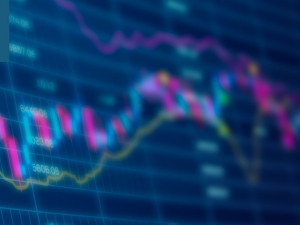
Huawei dropped from 5G network
Morning mid-market rates – The majors
15th July: Highlights
- Johnson caves to U.S. pressure
- FOMC member fearful of economic outlook
- Eurogroup has no official status but its influence is growing
Scientists concerned over second wave of Covid-19
Already embroiled in a dispute over Chinese actions in Hong Kong, the UK Government bowed to significant pressure being exerted by Washington to both stop working with Huawei immediately and remove all its kit from the network by 2027.
This represents a significant turnaround for the Government which less than a year ago announced that it would allow limited involvement for Huawei. This decision angered Washington at the time which undertook a major campaign to overturn the decision.
The UK was left with a delicate decision over which of its major trading partners it should disappoint, particularly as it is about to leave the safety of the EU.
In the end it chose the U.S. a strategic partner rather than China which has become a significant financial support for the UK economy. If Beijing decides that it will withdraw that support, which amounted to £50 billion of investment last year, it will be a significant blow and confirm the UK’s continuing special relationship with the U.S.
Scientists warned yesterday over the possible worst-case scenario of a second wave of Covid-19 this Autumn/Winter.
While it took as read the expectation that the supply problems over PPE and the availability of ventilators and ICU beds have been solved, the sheer number of cases could easily overwhelm the National Health Service.
These concerns highlight two major issues; if there is another spike in infections, any subsequent lockdown would be a catastrophe for the economy as it would be almost impossible to finance and secondly the fallout in the employment market would see jobless figures reach at least 5 million.
For now, the major concern for the health of both the economy and the currency is how Chancellor Sunak will fund the plans he has in place already. Yesterday, the pound closed virtually unchanged versus the dollar at 1.2553 having earlier tested support around 1.2480.
Considering your next transfer? Log in to compare live quotes today.
U.S. economy facing significant disruption
She believes that the economy is surrounded by a thick fog of uncertainty and downside risks predominate. This was clearly an exercise in both support for Fed. Chairman Powell’s recent concerns and put some meat on the bones of his recent comments to Congress.
Brainard was a voter in the Fed’s recent decision to hold interest rates at close to zero and signal that they will remain at the current level until 2022. She went on to say that the Fed will need to be more transparent in its deliberations and its methods of communicating its expectations to the market.
She believes that the economy would be better served if, during the intra-FOMC period, markets were less speculative over Fed actions.
A series of rolling flare-ups or a second wave would severely impact by slackening the pace of the recovery and could lead to a double dip recession.
Presidential Candidate Joe Biden emerged from his cocoon of silence yesterday to exhibit his green credentials which confirmed that, should he be elected, the country will perform a volte-face over climate change. Biden announced a $2 trillion plan to revamp the U.S. energy sector and set the U.S. on a path to create totally carbon free energy in fifteen years.
Such a proposal runs completely contrary to President Trump’s view on both climate change and the use of fossil fuels. Biden sweetened the pill further by announcing the boost to employment such a proposal would bring.
It seems that with just a few months to go until the election, both camps are beginning to wake up and turn the campaign into a more traditional contest between ideologies.
The dollar remains mired in a 97.20/95.80 range with risk appetite its most significant driver for now. Yesterday it fell to a low of 96.17, closing at 96.23.
Eurogroup, no status but massive influence
It is supposedly a committee put together to protect and advise on the single currency and is made up of the Finance Ministers of the members of the Eurozone. It must feel odd to the Finance Ministers of those nations who are EU members but not in the Eurozone to turn up to meetings to funds that they are on the outside and also not privy to decisions that have already been made.
In truth it wields massive influence, so a change in its leadership is a major development, almost rivalling the appointments of EU Commission and EU Council Presidents. Last week, an Irishman, Finance Minister Paschal Donohoe was voted in to succeed his Portuguese predecessor which in itself was a show of power and independence from the Ministers since the Spanish Finance Minister, Nadia Calviño appeared to have both the credentials and support to be a shoo-in.
Calviño complained bitterly following the election that she had secured the ten votes necessary, so someone had clearly acted in a way contrary to how they had originally indicated they would.
She also had the support of France and Germany and it may be that that support was her undoing.
With the refusal of certain nations to bend to the will of the two major economies of the Eurozone over the Pandemic Relief Plan this may be another indication of a power shift where the one-nation, one vote system by which the bloc operates places no significance on size or strength of economy.
If that is the case there may be some other weakening of the process which could slow decision making even further, if that were possible.
Yesterday the single currency gained versus the dollar reaching its highest closing level since March. While it is more a reaction to dollar weakness, it could start to attract further buyers. It reached a high of 1.1408, closing at .1399.

About Alan Hill
Alan has been involved in the FX market for more than 25 years and brings a wealth of experience to his content. His knowledge has been gained while trading through some of the most volatile periods of recent history. His commentary relies on an understanding of past events and how they will affect future market performance.”



